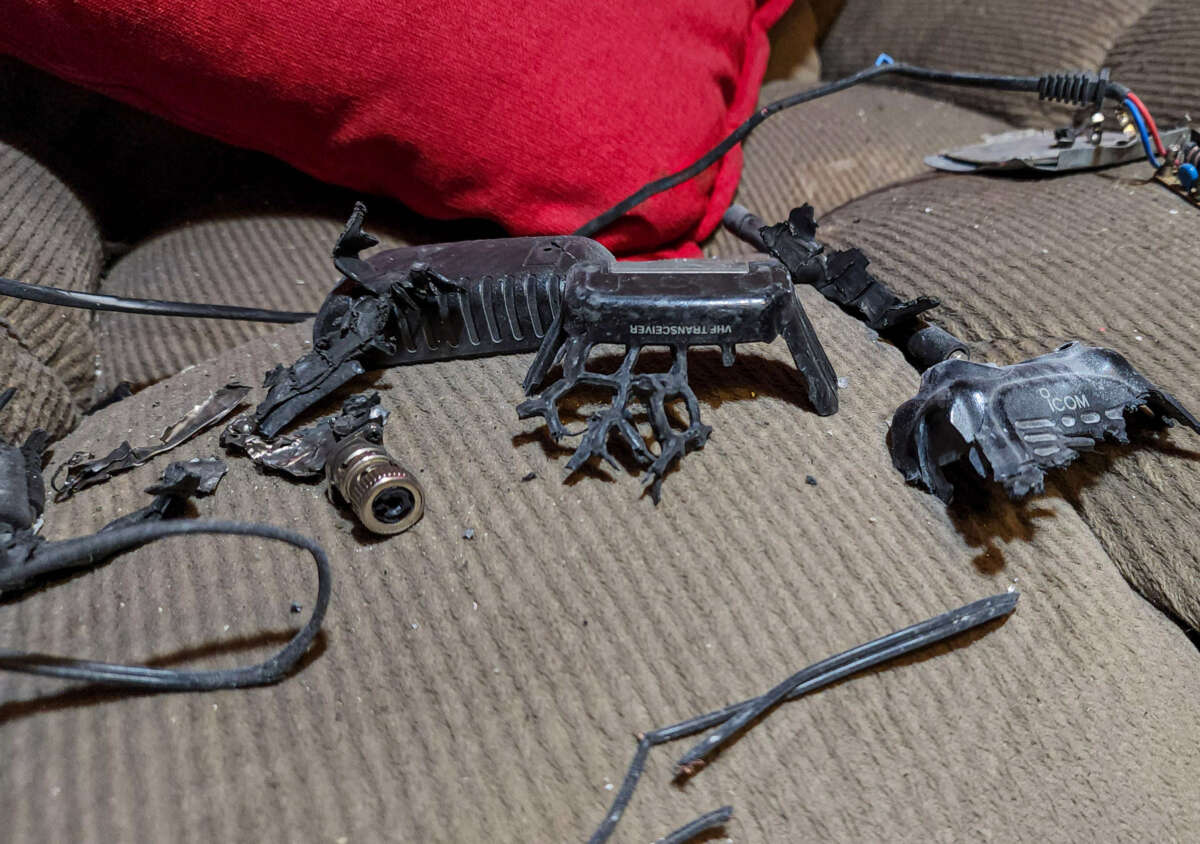Support justice-driven, accurate and transparent news — make a quick donation to Truthout today!
The death toll from Israel’s device explosions in Lebanon is continuing to rise as Israel has intensified its bombings in southern Lebanon and Hezbollah’s leader has said the attacks are a “declaration of war” by Israel.
On Thursday, the Lebanese Health Ministry reported that the death toll from the pager and walkie talkie explosions in the previous two days is at 37, while over 3,000 people have been injured. Tuesday’s attacks killed 12 people, while Wednesday’s attack killed 25 so far. The death toll may still rise; some 300 people are still in critical condition, according to Lebanon Health Minister Firas Abiad.
Health officials say that the attack was, in essence, a mass-disabling event. Abiad said that there were 400 surgeries carried out across the country on Tuesday alone, the majority of them addressing face and eye injuries.
“Never do you have eye emergencies at this frequency. It’s transforming 2,000 people into disabled [people] at the same time,” one doctor who worked at the Beirut Hôtel de France hospital told The Guardian.
“Unfortunately, we were not able to save a lot of eyes,” Elias Warrak, a doctor at Mount Lebanon University Hospital in Beirut, told BBC. He said that he had to remove at least one eye for over 60 or 70 percent of the patients.
“Some of the patients, we had to remove both eyes. It kills me. In my past 25 years in practice, I’ve never removed as many eyes as I did yesterday,” Warrak said.
Meanwhile, Reuters reported on Thursday that Israel has carried out dozens of strikes in southern Lebanon following the device attacks. Though Israel and Hezbollah have exchanged thousands of strikes amid Israel’s genocide in Gaza — with the vast majority coming from Israeli forces — Lebanese officials cited by Reuters said Thursday’s strikes from Israel were the most intense since October.
In a much-anticipated televised speech on Thursday, Hassan Nasrallah, the Secretary General of Hezbollah, an armed political bloc that rose to prominence amid Israel’s 22-year occupation of southern Lebanon, called the attacks a “declaration of war” by Israel that crossed “all red lines.”
Hezbollah has said that the pagers and walkie talkies that exploded this week are used by members of the group. However, none of Hezbollah’s leadership were injured, Nasrallah said, as the leaders use different models from the devices that exploded.
The attacks caused major civilian harm. Many children have been injured, officials have said, and at least two children were killed; Nasrallah noted that many explosions occurred in hospitals and civilian areas.
Questions still loom over how the attack was carried out. Some early reports have indicated that groups in other countries were involved in rigging the devices to explode, and that the attack was likely planned out months in advance.
This means that the attack was likely indiscriminate, in that aggressors made little attempt to contain civilian harm and target combatants only, as human rights experts have said. Indiscriminate attacks are a violation of international law. Experts have also noted that the use of booby traps — or transforming an everyday object into a weapon — is also a violation of international law.
In a statement on Thursday, a group of 21 UN experts said that not only are the attacks war crimes, but so is their intended effect of spreading fear among the country. “Terror” and a “climate of fear” now “pervades everyday life” among civilians in Lebanon, they noted.
“These attacks violate the human right to life, absent any indication that the victims posed an imminent lethal threat to anyone else at the time,” the UN experts said. “Such attacks require prompt, independent investigation to establish the truth and enable accountability for the crime of murder.”
Israel, however, is gearing up for more attacks. Israeli Defense Minister Yoav Gallant said on Wednesday that Israel is entering a “new phase” of fighting, after 11 months of genocide in Gaza, and that the military will be focusing instead on fighting Hezbollah — and, if their method of warfare is carried over, anyone else in Lebanon.
A terrifying moment. We appeal for your support.
In the last weeks, we have witnessed an authoritarian assault on communities in Minnesota and across the nation.
The need for truthful, grassroots reporting is urgent at this cataclysmic historical moment. Yet, Trump-aligned billionaires and other allies have taken over many legacy media outlets — the culmination of a decades-long campaign to place control of the narrative into the hands of the political right.
We refuse to let Trump’s blatant propaganda machine go unchecked. Untethered to corporate ownership or advertisers, Truthout remains fearless in our reporting and our determination to use journalism as a tool for justice.
But we need your help just to fund our basic expenses. Over 80 percent of Truthout’s funding comes from small individual donations from our community of readers, and over a third of our total budget is supported by recurring monthly donors.
Truthout has launched a fundraiser, and we have a goal to add 273 new monthly donors in the next 72 hours. Whether you can make a small monthly donation or a larger one-time gift, Truthout only works with your support.
